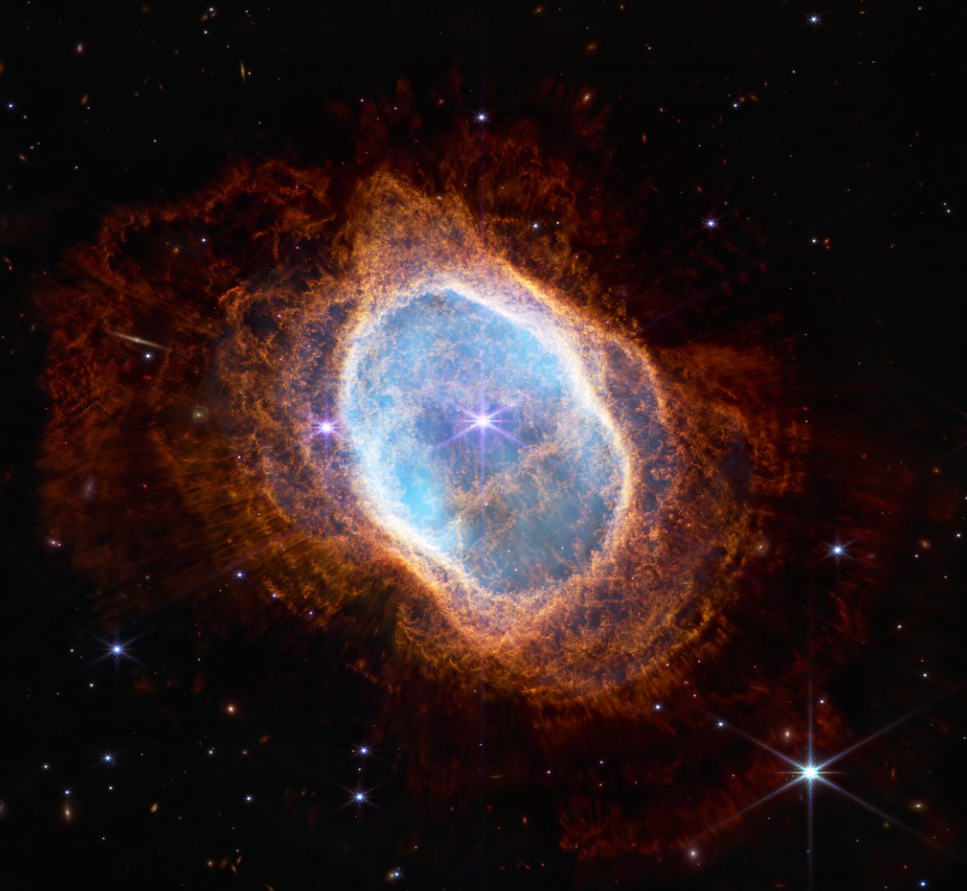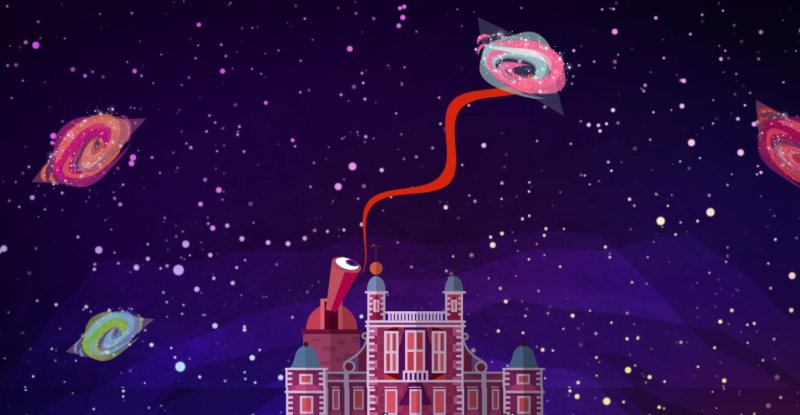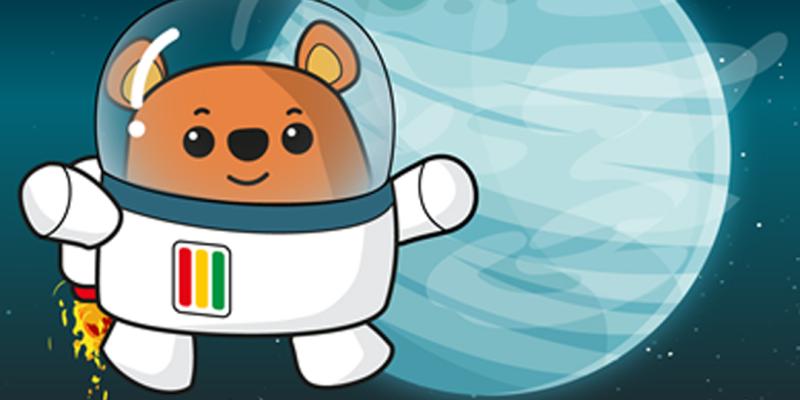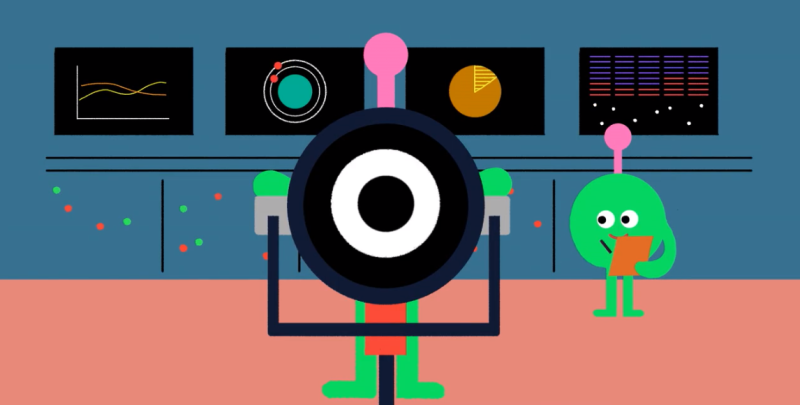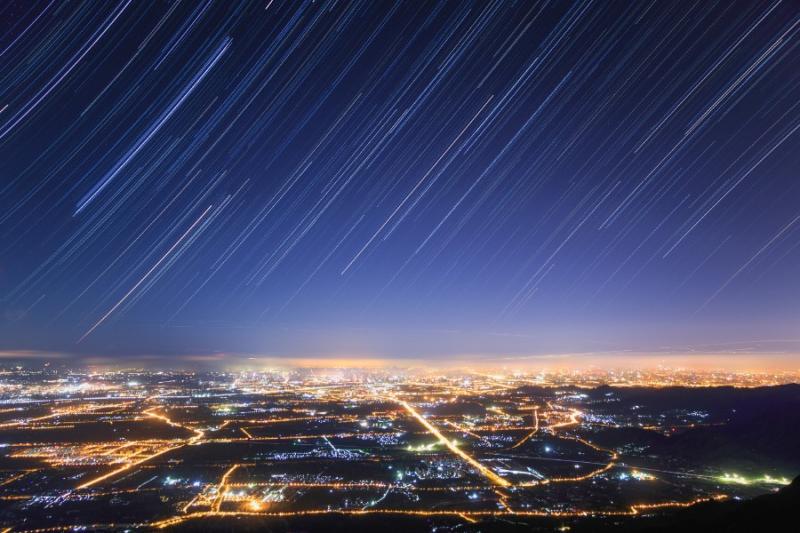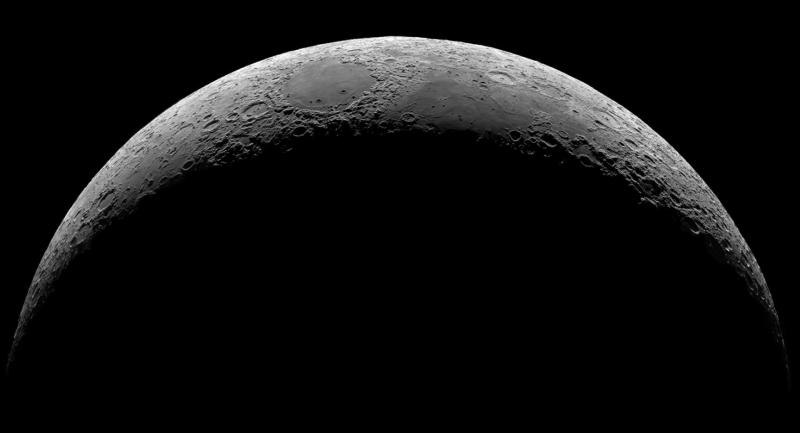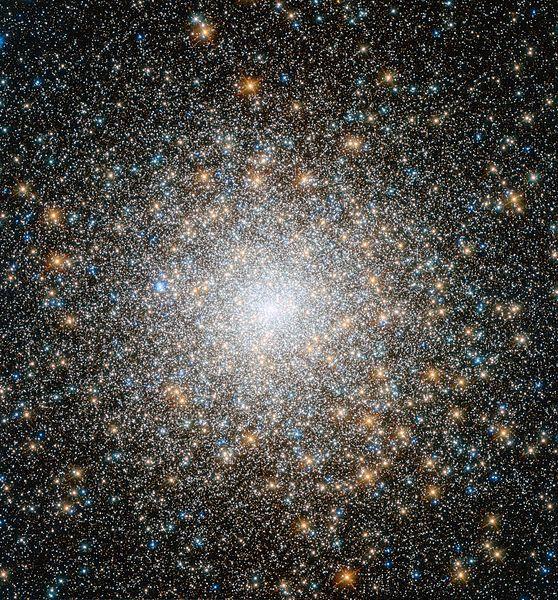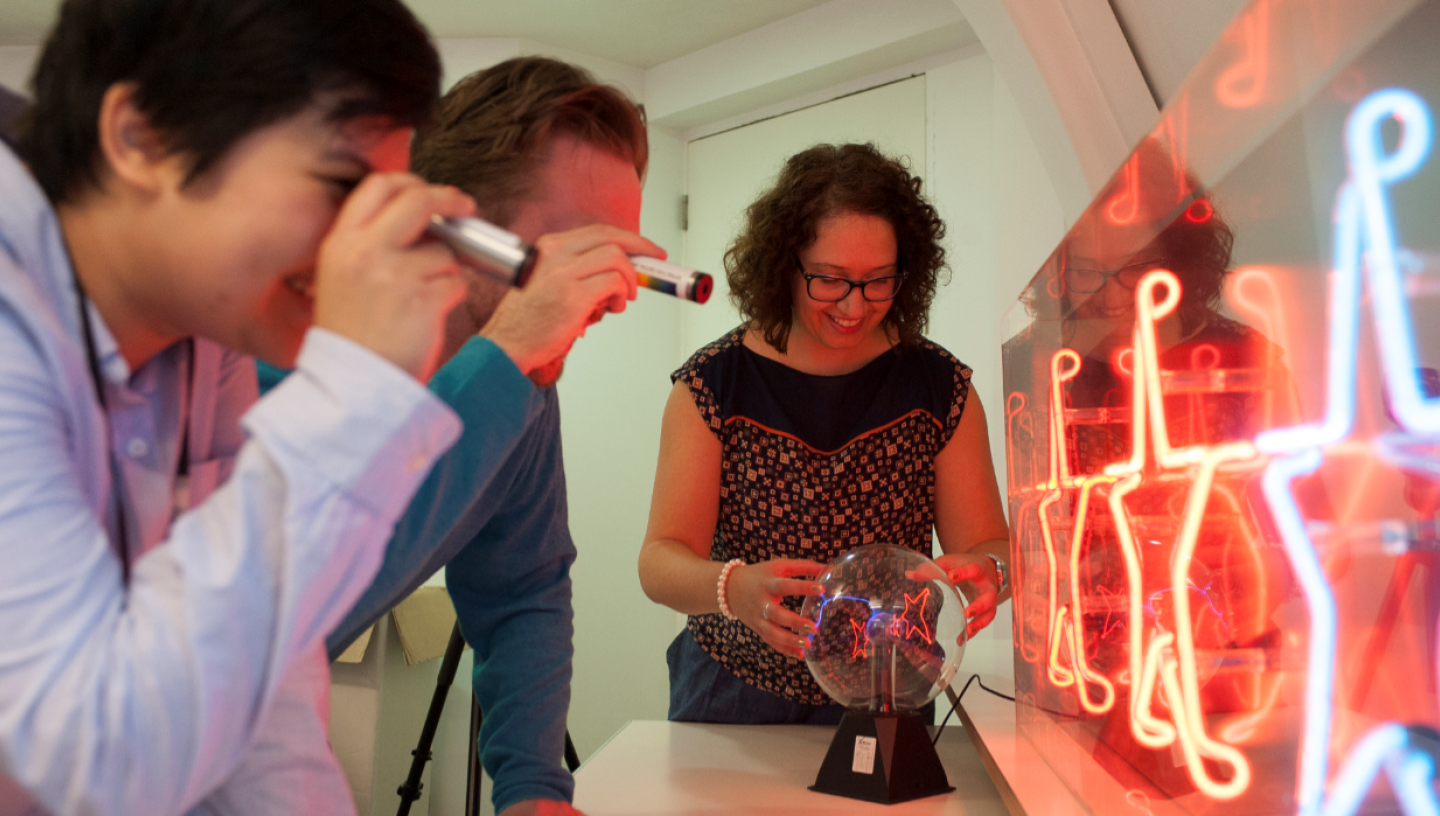
Bookings for our Digital Outreach Programme are now open up to July 2025!
Please read the information below to find out all you need to know about our digital programme and to submit your enquiry form.
To keep up to date on announcements and news, sign up to our Schools Newsletter.
If you can't visit us at the Royal Observatory Greenwich for an onsite session, don't worry! We're excited to offer a number of online workshops for schools and students throughout the academic year.
Our digital sessions are delivered by Royal Observatory Greenwich astronomers and are run on either Zoom or Teams, whichever works best for you.
Our programme explained
For 2024, we have introduced new types of workshops:
Solo Workshop
In this highly interactive workshop, your class will be the only one in the session with our Astronomer. Each session ends with a segment for Q&A so there are plenty of opportunities to ask questions and discover new things. The workshops use a combination of sound, film, polls and activities to explain different scientific concepts.
These sessions can be run on Zoom or Teams, whichever works better in your classroom. Cameras and microphones can be switched on for interactivity.
Materials for the workshop and joining instructions will be sent to the lead teacher up to a week before the session.
Workshop Webinar - KS2 only
In this discounted workshop, multiple classes can join our Astronomer for a Sun, Earth, Moon workshop in a webinar style, and use a combination of sound, film, and polls to explore different scientific concepts. The session will be less interactive than the solo version, but students will still have the opportunity to respond to astronomer questions via polls and teachers will have the opportunity to send a question in advance from their class.
These sessions will run on Zoom, with cameras and microphones switched off for the duration of the workshop. Currently, we can only run Workshop Webinars for KS2 groups.
Materials for the workshop, joining instructions, and a link to submit questions in advance will be sent to the lead teacher up to a week before the session.
Solo workshop options
KS2: Sun, Earth and Moon
- Curriculum links: Sun, Earth, Moon system: relative sizes, scale, orbital periods and motion.
- Session type: Workshop
- Session times: selected Wednesdays only - 10:30am and 11:30am
- Capacity: 30 pupils per session
- Price: £70 per session
- Duration: 45 minutes
In this digital session, students will explore the Sun, Earth and Moon system with a real Royal Observatory Greenwich astronomer. Together they will investigate the similarities, differences and the relative scale and shape of these amazing objects. The Earth and Moon’s motion through space and how it relates to the concept of time (day, month, year) will also be explored. The session will include a number of interactive elements such as video clips and practical activities to encourage students to think about how the Sun, Earth and Moon system works. A Q&A segment is included as part of the session so they can ask any big space questions they may have. The session will then be followed up with activities for students to try afterwards to test what they have learned.
KS2: Exploring Our Solar System
- Curriculum links: Earth and Space
- Session type: Workshop
- Session times: selected Wednesdays only - 10:30am and 11:30am
- Capacity: 30 pupils per session
- Price: £70 per session
- Duration: 45 minutes
Students take a journey through our amazing Solar System in this interactive digital session. Together with a Royal Observatory Greenwich astronomer they will explore the different types of space objects from the Sun all the way through to space rocks and learn a little more about them along the way. This session will include a number of interactive elements such as video clips and activities to help get students thinking and talking about the wonders of our Solar System. A question and answer segment will finish up the session so they can ask any space questions they may have. The session will then be followed up with activities for students to try afterwards to give their brains a real workout.
KS3: Forces and Space Exploration
- Curriculum links: Gravity force, weight, mass, states of matter, living organisms
- Session type: Workshop
- Session times: selected Wednesdays only - 10:30am and 11:30am
- Capacity: 30 pupils per session
- Price: £70 per session
- Duration: 45 minutes
In this digital session, students will explore the difference between mass and weight and look at what determines the strength of the force of gravity. They’ll apply their learning to see how gravity affects space exploration on the International Space Station, the Moon and Mars before diving into some of the active Mars missions. Delivered by a Royal Observatory Greenwich astronomer, this session will include a range of interactive activities such as video clips and activities to help explain the scientific concepts in a real world context. The session finishes up with a question and answer segment so students have the opportunity to ask any questions they have. Post-session activities will also be supplied for your students to try afterwards and test what they have learned.
KS4: Life Cycle of Stars
- Curriculum links: life-cycle of stars (nebulae, protostars, main sequence, red giants, supernovae, white dwarfs, black holes)
- Session type: Workshop
- Session times: selected Wednesdays only - 10:30am and 11:30am
- Capacity: 30 pupils per session
- Price: £70 per session
- Duration: 45 minutes
Stars are born, live out their lives and die all throughout the universe, but what determines the path they take? What makes some stars meet an explosive end, while others simply quietly fizzle out? In this interactive digital workshop, a Royal Observatory Greenwich astronomer will walk your students through the life cycle of a star the size of our Sun, as well as the life cycle of stars much larger too. In the question and answer session students will have the opportunity to ask questions about stars or indeed anything astronomical, as well as being provided with post-workshop exercises to ensure they understand the key stages of a star’s life.
Post-16: Cosmic Distance Ladder
- Curriculum links: Parallax, standard candles (Cepheid variables, type 1a supernovae)
- Session type: Workshop
- Session times: selected Wednesdays only - 10:30am and 11:30am
- Capacity: 30 pupils per session
- Price: £70 per session
- Duration: 45 minutes
How do we measure distances in space? We can’t exactly pull out the tape measure to work out the distance between the Earth and the Moon, so astronomers have had to develop various methods to calculate distance on cosmic scales. In this interactive digital session, an astronomer from the Royal Observatory Greenwich will describe these methods and explain how they build on each other to create the cosmic distance ladder that allows us to measure the most distant of objects. Towards the end of the session students will have the opportunity to ask any astronomy or careers questions they may have and we will provide follow-up activities to stretch their knowledge of space even further.
Workshop webinar option
KS2: Sun, Earth and Moon
- Curriculum links: Sun, Earth, Moon system: relative sizes, scale, orbital periods and motion.
- Session type: Workshop
- Session times: selected Wednesdays only at 10:30am
- Capacity: 30 pupils per session, with other schools in attendance
- Price: £15 per session
- Duration: 45 minutes
In this Workshop Webinar, students will explore the Sun, Earth and Moon system with a real Royal Observatory Greenwich astronomer. Together they will investigate the similarities, differences and the relative scale and shape of these amazing objects. The Earth and Moon’s motion through space and how it relates to the concept of time (day, month, year) will also be explored. The session will include a number of interactive elements such as video clips and practical activities to encourage students to think about how the Sun, Earth and Moon system works. The session will then be followed up with activities for students to try afterwards to test what they have learned.
Decided on your session?
Great! Now decide which date works for you. For the 2024-25 school year, we will be offering digital sessions on these dates:
- Wednesday 6 November 2024 – Workshop webinar
- Wednesday 4 December 2024 – Solo workshop
- Wednesday 8 January 2025 - Solo workshop
- Wednesday 5 February 2025 - Workshop webinar
- Wednesday 5 March 2025 - Solo workshop
- Wednesday 2 April 2025 – Workshop webinar
- Wednesday 30 April 2025 - Solo workshop
- Wednesday 4 June 2025 - Workshop webinar
- Wednesday 2 July 2025 - Solo workshop
Once you've picked a date and time, click this link to start your booking:
Royal Museums Greenwich is a family of museums. The information on this page tells you all about the learning programmes run by our Astronomy team. For information about the programmes run by the National Maritime Museum, Cutty Sark, Queen's House and the Prince Philip Maritime Collections Centre click here.
Want an onsite visit instead? You can find more information here:
Frequently asked questions
What is a Digital Outreach Session?
In our workshops, one of our astronomers will take a look at some of the biggest topics in space science and astronomy. These curriculum-linked sessions include a number of interactive elements such as video clips and demonstrations to help explain some of the more challenging scientific concepts.
How much does a Digital Outreach session cost?
Solo Workshops are charged at £70 for a group of up to 30 students and you will be the only class in the session.
Workshop Webinars cost £15 for a group of up to 30 students and will be joined by classes from other schools.
Who develops and runs the sessions?
The sessions are run by our real astronomers so there is always an expert available to ask any questions. Our content is developed by the astronomy education team in collaboration with our teacher forum. All sessions are tested and evaluated with the teacher forum and also with school groups to ensure that the content developed is exactly what teachers are looking for and what students will thoroughly enjoy!
Are there activities that can follow on from the digital session?
Yes - LOTS. We have created a special Learning at Home hub if you are looking for activities that students can do by themselves. All of these curriculum-linked resources have been selected because they are self-contained, so great to be set as independent study activities. We have something for everyone from EYFS to post-16 so check it out.
On our website you will also find information about: our Teacher Forum, free teacher training sessions - both onsite and online, a growing collection of podcasts, blogs along with curriculum-linked classroom resources, animated videos.
Keep in touch
We have a monthly e-newsletter so you can easily keep up to date with our schools programme, new resources and other student/teacher events.
Royal Observatory science lesson ideas and resources
We have a huge selection of resources to choose from that can be used before or after your session.
